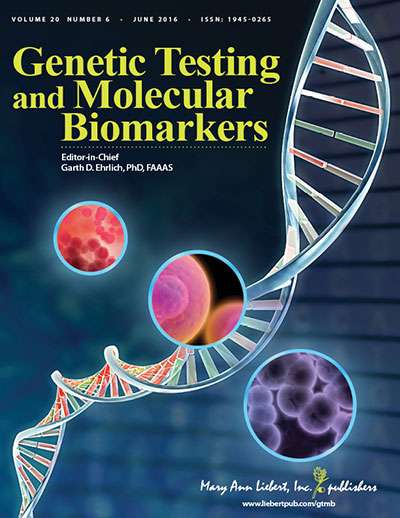Study shows cell-free DNA sequencing is more accurate for diagnosing myelodysplastic syndrome

Using next-generation sequencing (NGS) methods to analyze cell-free DNA in the blood of patients with myelodysplastic syndrome (MDS) yields more accurate results than the current standard approach of Sanger sequencing. This finding, and the greater likelihood of detecting the genetic abnormality responsible for the disorder by analyzing cell-free DNA versus DNA extracted from a patient's blood cells, is reported in a new study published in Genetic Testing and Molecular Biomarkers.
Ferras Albitar, Maher Albitar, and coauthors from NeoGenomics Laboratories, Irvine, CA, compared three techniques for identifying the DNA mutations associated with MDS, a group of cancers affecting the bone marrow. Accurate analysis of the molecular abnormalities in patients with MDS can aid in early diagnosis and help guide patient care. Both cell-free and cellular DNA from the cancerous cells in the bone marrow are shed into the patient's blood.
In the article "Deep Sequencing of Cell-Free Peripheral Blood DNA as a Reliable Method for Confirming the Diagnosis of Myelodysplastic Syndrome" the researchers propose that NGS be considered as the method of choice for sequencing cell-free DNA to confirm the diagnosis of MDS.
"This is a remarkable finding that cell-free DNA provides a more sensitive assay for detecting cancer than does the traditional approach of analyzing cell-associated DNA," says Genetic Testing and Molecular Biomarkers Editor-in-Chief Garth D. Ehrlich, PhD, FAAAS, Center for Genomic Sciences and Center for Advanced Microbial Processing, Institute for Molecular Medicine and Infectious Disease, Drexel College of Medicine (Philadelphia, PA).
More information: Ferras Albitar et al, Deep Sequencing of Cell-Free Peripheral Blood DNA as a Reliable Method for Confirming the Diagnosis of Myelodysplastic Syndrome, Genetic Testing and Molecular Biomarkers (2016). DOI: 10.1089/gtmb.2015.0278

















